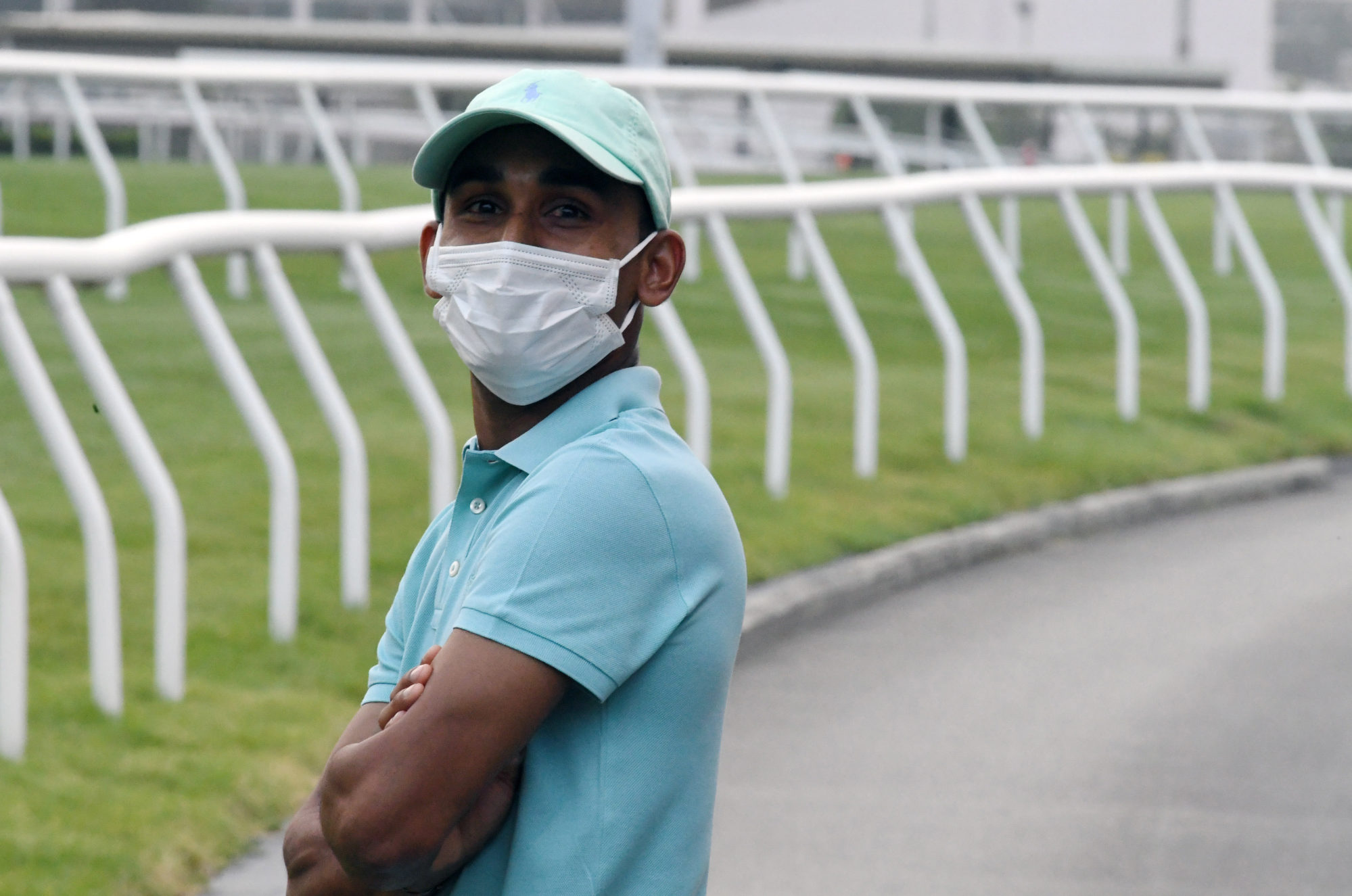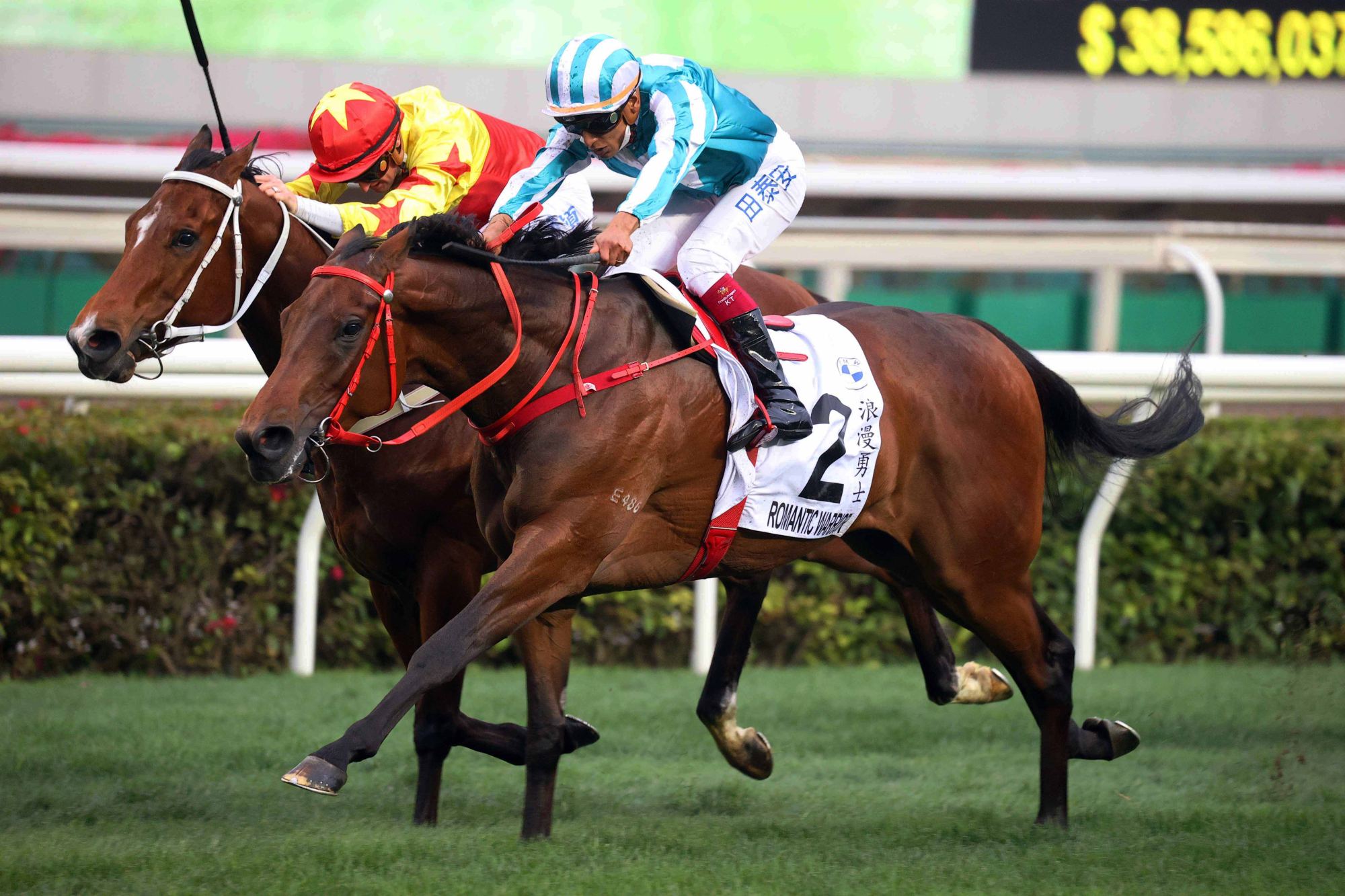The ability of an athlete to monitor their resting heart rate is crucial from a training, recovery and health standpoint. For Karis Teetan, this simple yet important biometric was the initial indication something was not quite right at the beginning of the racing season.
Typically, well-conditioned athletes have a resting heart rate below 60 beats per minute, a training adaptation known as bradycardia. For Teetan, this value – which would normally lie somewhere between 40-50 beats per minute – was higher than usual and was accompanied by a sensation of “something pressing against his chest”.
“I didn’t worry at that time because I thought it was because I was unfit and I had just come back after having a good summer holiday,” said the Mauritian jockey.
He had also tested positive for Covid-19 for 12 days while on holidays and thought he may just be feeling a residual effect of the virus.
Teetan confident of HKIR return after passing trial test
However, little did he know at that time he was suffering from hyperthyroidism, a condition that thankfully was detected by a blood test on the morning after he landed a treble at Sha Tin on September 18.
“The doctors said my [thyroid] numbers were off the chart, and I could have had a heart attack if I’d continued to ride,” Teetan said.
Hyperthyroidism is a condition in which the body produces too much thyroid hormone and can put enormous pressure on the heart, even at rest. The excess hormone can precipitate tachycardia (a resting heart rate greater than 100 beats per minute), arrhythmia (abnormalities in heart rhythm) and possibly even sudden cardiac arrest.
Teetan recalls his resting heart rate one morning – a week following his diagnosis – was 180 beats per minute, a heart rate response comparable to a maximum in-race heart rate of a Hong Kong jockey based on published research.

Unfortunately, Teetan’s thyroid symptoms did not stop there. He experienced other undesirable symptoms associated with the condition, including fatigue, tremors and muscle weakness, to the point where he struggled to hold his baby daughter and suffered rapid weight loss, with the already lightweight jockey dropping from 51kg to 46kg in the space of a week.
“It was a very difficult time for me, especially the first month. It felt like I was dying, I’m not afraid to say it. I felt that this was it. I wouldn’t wish it on anyone, not even on my worst enemy,” Teetan said.
The condition forced the 2019 International Jockeys’ Championship winner to hang up his whip for almost three months as medical experts worked tirelessly to determine the cause of the condition and provide the most appropriate treatment.
Initially, Teetan was diagnosed with Graves’ disease – an autoimmune condition that is one of the most common causes of hyperthyroidism.

That was a tough pill for Teetan to swallow at the time, a once super healthy athlete being told he had an autoimmune condition that would require him to be on medication for life.
“Once I was told it was Graves’ disease, I thought to myself, ‘I don’t think I’ll ride again’,” Teetan said.
Fortunately, further test results showed Teetan was not ticking all the boxes for other classic markers for Graves’ disease, and his hyperthyroidism was, in fact, due to subacute thyroiditis (an inflamed thyroid), which can be caused by viruses including Covid-19.
While this is extremely rare, a study published last year found that of 160 patients who tested positive for Covid-19, 6.8 per cent of them developed subacute thyroiditis within three months of having the virus.

With modifications to his medication and continuous monitoring, Teetan’s thyroid levels dropped, the symptoms dissipated and he was deemed fit to ride again in December after being sidelined for 80 days.
Despite missing 21 local fixtures, Teetan sits in fourth position in this term’s jockeys’ championship with 46 wins – 41 of which he has secured since his return to saddle – in a testament to his strength, resilience and determination.
Adding to a tough season for Teetan is the fact he lost the mount aboard middle-distance superstar Romantic Warrior to James McDonald, first while he was sidelined and again since.
Teetan returns to the races after his career teetered on the edge for 80 days
While Teetan won the Hong Kong Derby (2,000m) and Group One QE II Cup (2,000m) on the gelding last season, McDonald has been aboard the five-year-old galloper for both of his past two elite-level successes.
“It was very hard to lose a horse like that. I understand it’s a big horse, but at that moment when I was sick, you realise your life and your health is much more important,” Teetan said.
“If your health isn’t good, then there’s no future. There’ll always be good horses, and there’s always going to be big races. Once you have your health, you’re in good shape and your mind is good, you can work hard and get on good horses and win.”

















